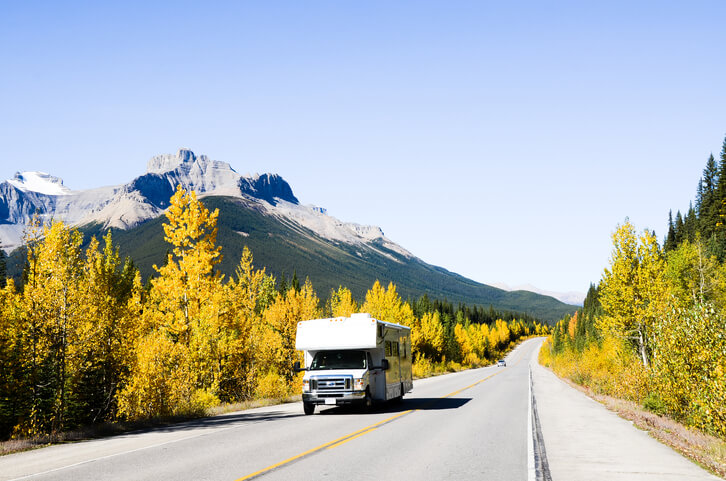7 Safety Tips to Prevent Common RV Accidents and Enjoy Your Holiday
Contents
- Why is RV Safety Important for Children and Adults?
- Safety Tips for a Joyful Holiday Road Trip
- Keep Your RV Measurements in Mind
- Pay Attention to the Wind’s Direction When Parking
- Make Sure Your Retractables are Retracted
- Check Your Tires Regularly
- Roll and Lock Up Your Awnings on Windy Days
- Prevent the “Awning Pool” Effect
- Remember Your Standard Check-Ups!
- Stay Safe This Holiday Season!
For many RVers, traveling in a motorhome is a great way to spend the holidays. Not only can it be a cost-effective way of visiting family or exploring new places, but it can make the experience even more enjoyable and fulfilling.
That being said, we want to make sure that you stay safe this holiday season. Whether going to another state or “camping out in your own backyard”, we have some crucial tips that can keep you and your family protected.

Why is RV Safety Important for Children and Adults?
There are a few reasons why it’s more critical to be safe behind the wheel of an RV than any other vehicle. According to traffic data, over 75,000 people per year are injured in collisions involving motorhomes. Of those, around 26 people die in these accidents. Statistically speaking, that’s not much, but you don’t want you or your family to be one of them.
Some of the reasons why RVs can be more dangerous include:
- Tired/sleepy drivers
- Inexperienced drivers
- Larger vehicles cause more damage
- Improperly balanced RVs can be a hazard
Safety Tips for a Joyful Holiday Road Trip
Fortunately, we know a thing or two about staying safe while traveling on the road. However, you have to keep in mind that accidents can happen when you’re not driving as well, so you have to be vigilant at all times. So, with that in mind, here are the most common dangers you can experience when traveling in an RV, and what you can do to avoid them.
Keep Your RV Measurements in Mind
When you’re driving in a car or truck, you don’t have to worry about things like turn radiuses or height restrictions. However, depending on the size of your RV, you can encounter problems when you’re on the road due to low bridges or tight corners.
So, to make sure that you don’t wind up making your RV into a convertible, you should have the height written down somewhere you can access it, or commit it to memory. Also, keep in mind the overall length so that you can figure out whether turning is going to be an issue, especially when towing a trailer.
Pay Attention to the Wind’s Direction When Parking
Another thing that most people don’t have to consider is high winds. Whether you’re parked, or you’re on the road driving, your RV has a lot more surface area than a standard car or truck, which means that wind can be a tripping hazard. If you’re not careful, you could be putting yourself and your rig in danger, particularly when parked overnight.
Even if your RV doesn’t tip over completely, it can still rock back and forth during high winds. Thus, to alleviate this issue, you want to try and park with your nose facing the wind, as well as deploy stabilizers when parked overnight. Also, when making turns, take them slower when it’s windy so that you don’t get too off-balance and fall over in the process.
Make Sure Your Retractables are Retracted
One of the nice things about many newer RVs is that they have parts that can extend to offer more living space. However, if you forget to retract these sections before heading off, you could wind up with a disaster on your hands.
To ensure that you don’t forget anything, you should make a list of things to check before you hit the road. This list should not only cover expandable sections but anything else you should do before driving off (i.e., refilling water tank, unplugging, etc.)
Check Your Tires Regularly
While a flat tire or a blowout in a regular vehicle can be nerve-wracking enough, having it happen while driving or towing your RV can be extra dangerous. Due to the of the size and weight of these vehicles, your tires are crucial to staying safe while on the road. To prevent a blowout, you want to monitor your tire pressure and look for any signs of extensive wear and tear. Also, look out for things like worn out treads as that can affect your traction, especially in colder temperatures.
Roll and Lock Up Your Awnings on Windy Days
We’ve already talked about wind rocking your RV back and forth, but if you have an awning open during high winds, that can be even more of a hazard. According to most RV repair shops, a broken canopy is one of their most common jobs. If it starts to get windy, put the awning down.
Prevent the “Awning Pool” Effect
Another issue that can affect your awning is a buildup of water. If you’re parked in an area with a lot of rain, it can start to collect in the center—which can create a hazard, not only will it damage the awning from the pressure, but it could cause the whole thing to collapse.
Make sure to check it when it’s wet outside and remove any pools of water before they get too big. Also, tilting the awning at an angle can avoid the problem altogether.
Remember Your Standard Check-Ups!
Having an RV means that you have to maintain your engine as well as all of the other internal systems inside your rig. Refrigerators, water pumps, and electrical outlets can all pose potential dangers, and they can be even more of a threat if your RV has been unused for a while.
Thus, you want to make sure to inspect everything before you head out to make sure that it’s all working correctly. If something breaks while on the road, it can either be a major inconvenience or it could pose a threat, such as sparking a fire or causing a leak that leads to massive water damage.
Stay Safe This Holiday Season!
At Kirkland RV, we understand that RVing can be a rewarding experience. However, that’s no reason to throw caution to the wind. Stay vigilant whenever you’re out on the road, and you can avoid these common dangers. If you need help servicing your RV contact us and we can help you get your RV into the best condition.

